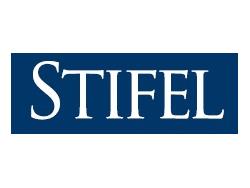Stifel Releases Post-Election Building Products Update
St. Louis, MO, December 21, 2016—Stifel has released its building products industry update, called Trump Bump: A Look at Floorcovering and Building Products.
“Results in this space are somewhat mixed but generally we have seen less of a move up in stock prices relative to some of the consumer groups we cover,” reports the analyst. “We suspect that the roughly 75 basis point increase in the 30-year mortgage rate that has accompanied the post-election stock market rally has played a role. While it is true that the 30-year mortgage rate is still historically low at 4.2% currently, the recent rise has resulted in a $175 per month increase in the payment on a $300,000 mortgage or 7% higher. Clearly the market is expecting Trump’s economic policies to increase economic growth, which could include stimulating housing demand, but the reality is that interest rates have reset immediately whereas the economic benefits from the Trump administration (excluding the psychological/confidence factors that may already be stimulating demand) if any will lag in timing to the rate move.”
Stifel continues, “EXP [Eagle Materials] has performed well on the infrastructure play and a recent rebound in oil prices. Other names like MHK [Mohawk], DOOR [Masonite International], CSTE [Caesarstone], TILE [Interface] and OC [Owens Corning] have not done as well. Those five companies do have a lower mix of U.S. earnings and would thus benefit less from changes in the U.S. statutory tax rate changes. These companies would also not appreciably benefit from increased infrastructure spending, but clearly would be hurt if mortgage rates rise and there is no improvement in incomes. We also note MHK is not likely to bring back much foreign cash as the company tends to deploy foreign cash for either acquisitions or capex in foreign plants. We think it is noteworthy that Mohawk is the worst performing stock in our coverage universe since the election. Our presumption is that higher mortgage rates and higher oil prices are perceived as negatives. We don’t believe oil is as important to Mohawk’s cost of goods sold as perceived and thus view this as a great buying opportunity.”
To listen to the interview with John Baugh, click here.
Related Topics:Interface, Mohawk Industries
